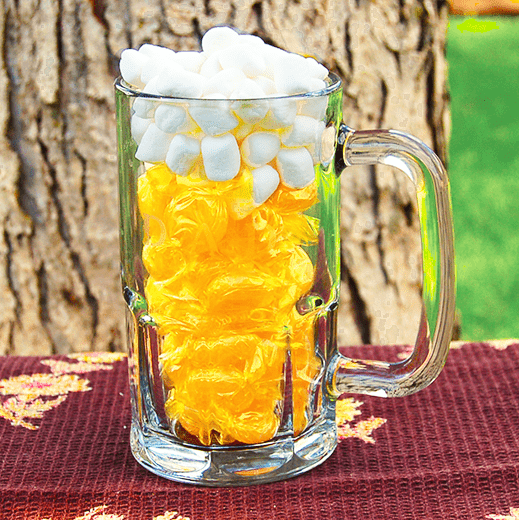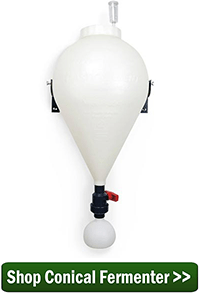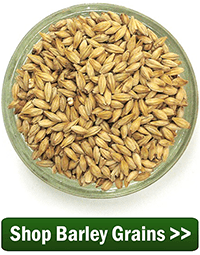 Sugar is an essential component of beer. Without fermentable sugar in the wort, there would be no alcohol. Most of the sugar in a beer ferments out, with a little being left behind for body and flavor. But balance is critical, and there are several reasons that a beer might come across as being too sweet. If your homebrew tastes too sweet you may want to take a look at these tips so that you can avoid ending up with home brew beers that finishes too sweet.
Sugar is an essential component of beer. Without fermentable sugar in the wort, there would be no alcohol. Most of the sugar in a beer ferments out, with a little being left behind for body and flavor. But balance is critical, and there are several reasons that a beer might come across as being too sweet. If your homebrew tastes too sweet you may want to take a look at these tips so that you can avoid ending up with home brew beers that finishes too sweet.
- Use more hops. Hops provide bitterness, which helps balance out a beer’s sweetness. Maybe your homebrew recipe just needs a little more hops added early in the boil?
- Mash low. When brewing all-grain, starch conversion takes place between about 148° and 160° Fahrenheit. At the higher end of the scale, fewer fermentable sugars are produced than at the low end. If your homebrew tastes to sweet, try mashing in the 148-150˚F range to create a more fermentable wort and ultimately a drier beer.
- Use less crystal/caramel malt. Crystal and caramel malts contribute significant sweetness to your homebrew, including unfermentable dextrins that simply won’t convert into alcohol. A reduction in the percentage of crystal malts will help if your homebrew tastes too sweet.
 Replace pale malt with pilsner. Similar to crystal malts, pale malt has more sweetness than pilsner malt, so when selecting a base malt for all-grain brewing you may want to go with pilsner over pale. Certain styles of beer, such as dry lagers and Belgian ales, may benefit from using pilsner malt as the base malt.
Replace pale malt with pilsner. Similar to crystal malts, pale malt has more sweetness than pilsner malt, so when selecting a base malt for all-grain brewing you may want to go with pilsner over pale. Certain styles of beer, such as dry lagers and Belgian ales, may benefit from using pilsner malt as the base malt.
- Use simple sugar. Adjunct sugars like corn sugar and cane sugar ferment out almost 100%. Though contrary to what your might expect, using sugar to reach your original gravity will increase the overall attenuation of your beer. If your homebrew tastes too sweet this will help. Exception: lactose sugar is unfermentable and will make your beer more sweet.
- Check your fermentation. Residual sweetness may be caused by an incomplete or stuck fermentation. Use your hydrometer to determine whether you have reached your target final gravity. If your gravity ends up too high, try using a yeast starter, yeast nutrient, or a different yeast strain.
- Check your yeast strain. Some strains of brewer’s yeast are more attenuative than others, meaning that they ferment a larger percentage of available sugars. If your homebrew tastes too sweet, maybe a different type of yeast is in order.

- Reduce your boil time. An extended boil may result in reactions that increase sweetness in your brew. Similarly, an intense boil may cause caramelization or Maillard reactions. Take it down a notch to see if that reduces residual sweetness.
Have you ever made a home brew beer that finished too sweet? What did you do to correct the problem?
—–
David Ackley is a beer writer, brewer, and self-described “craft beer crusader.” He holds a General Certificate in Brewing from the Institute of Brewing and Distilling and is founder and editor of the Local Beer Blog.

Is adding yeast after a few days and allowing a few more days fermentation a good idea to convert excess sugar in my brew?
I’m fermenting pineapples and at day 6 it still tastes very sweet.
Giovanni, If you are asking if you need to add additional yeast to let it ferment longer, you should not need to. However, if you find that it sah stopped fermenting before you want it to, adding additional yeast would be fine.